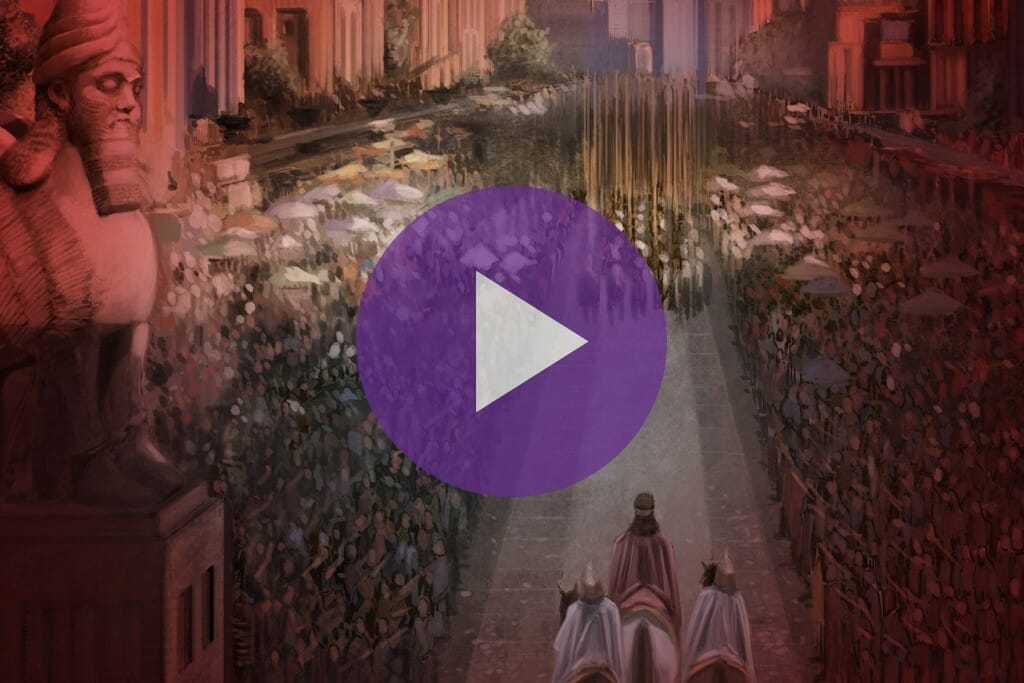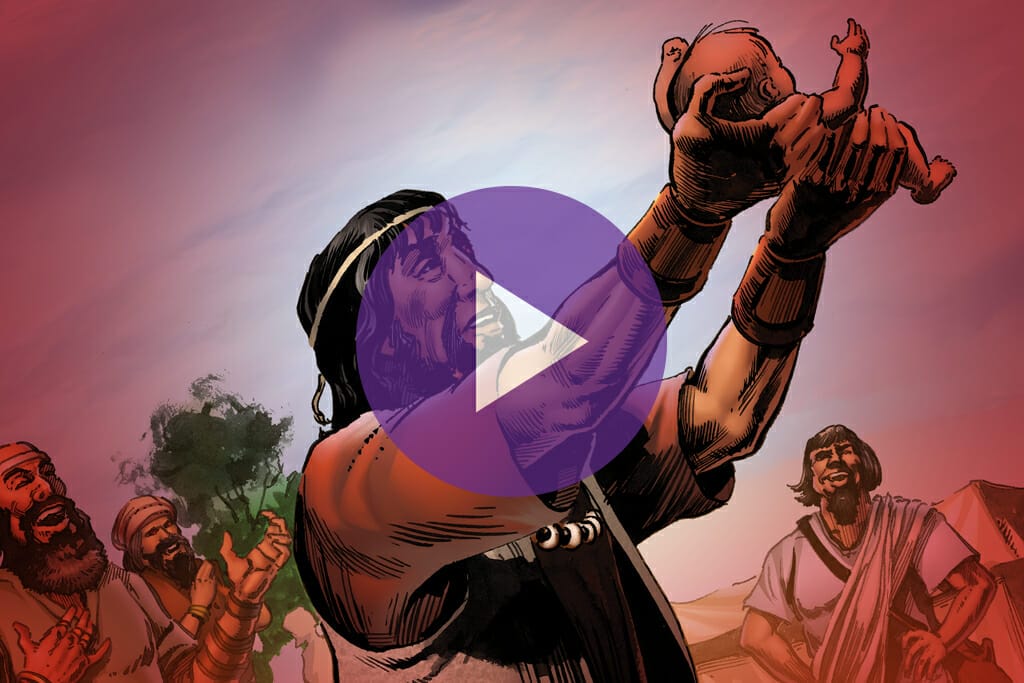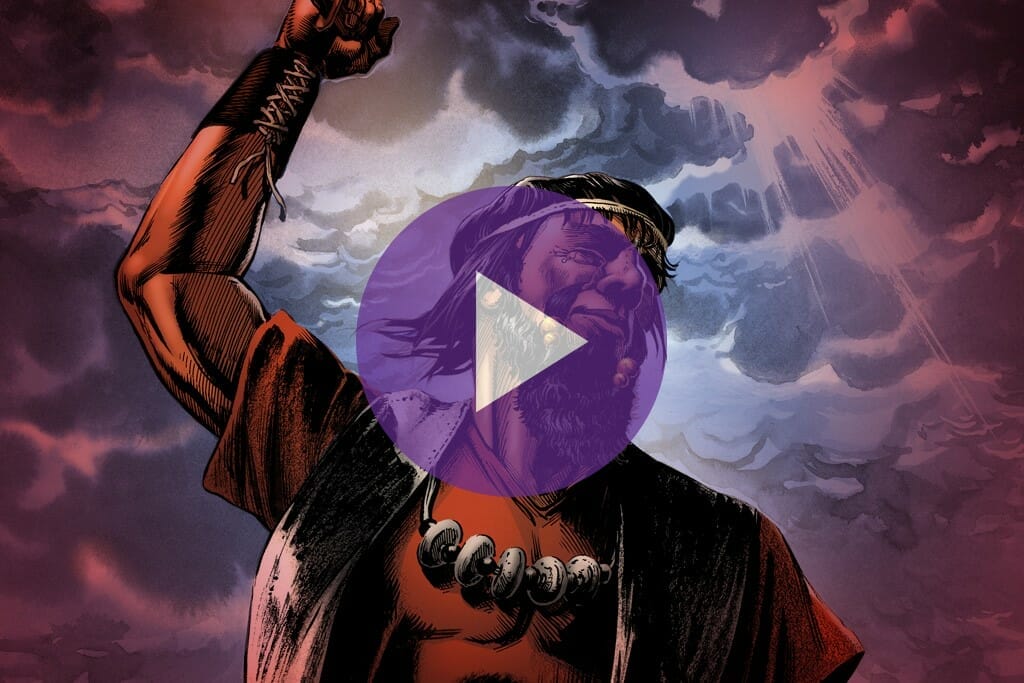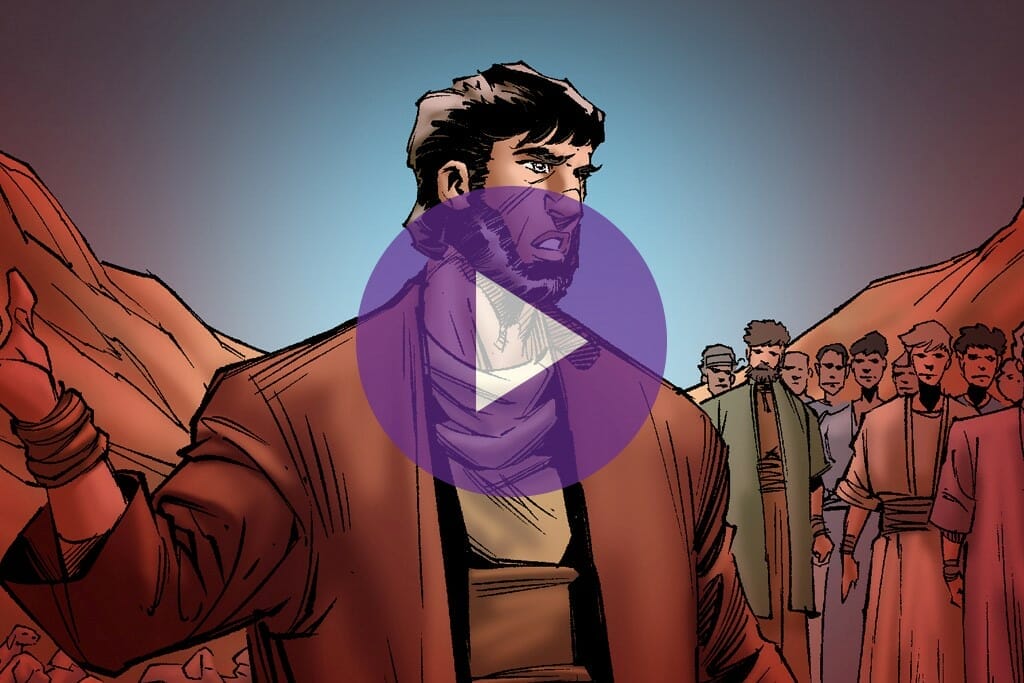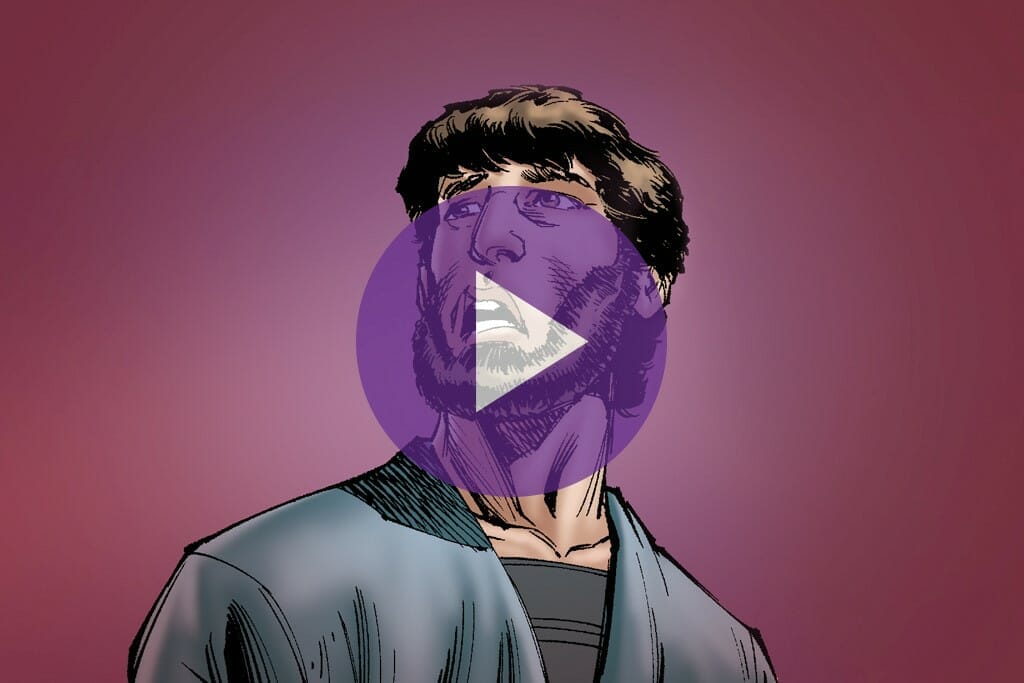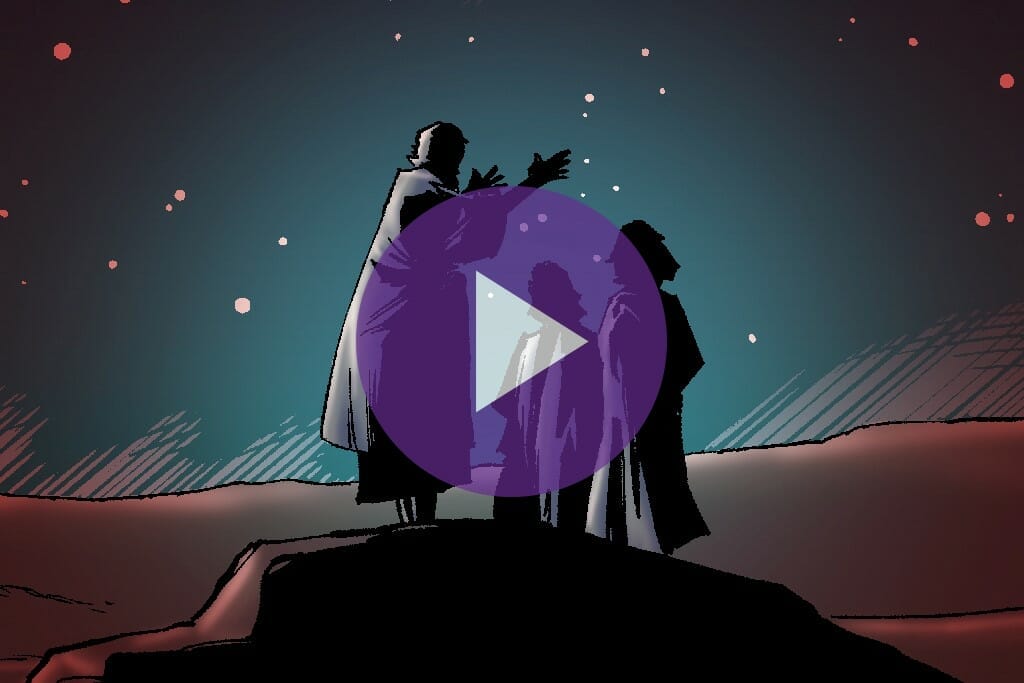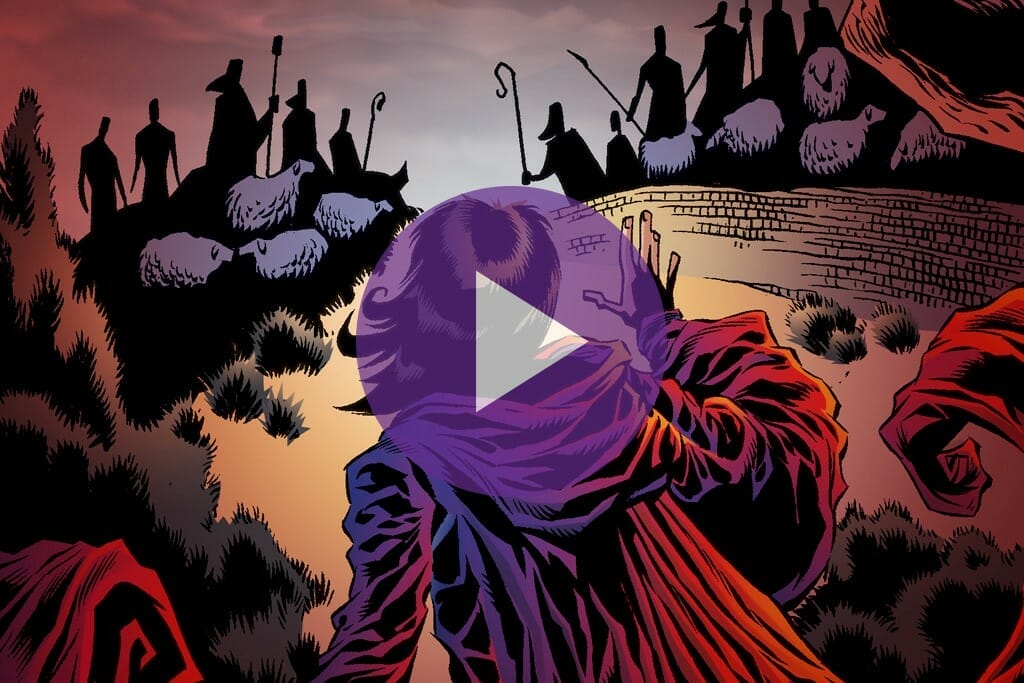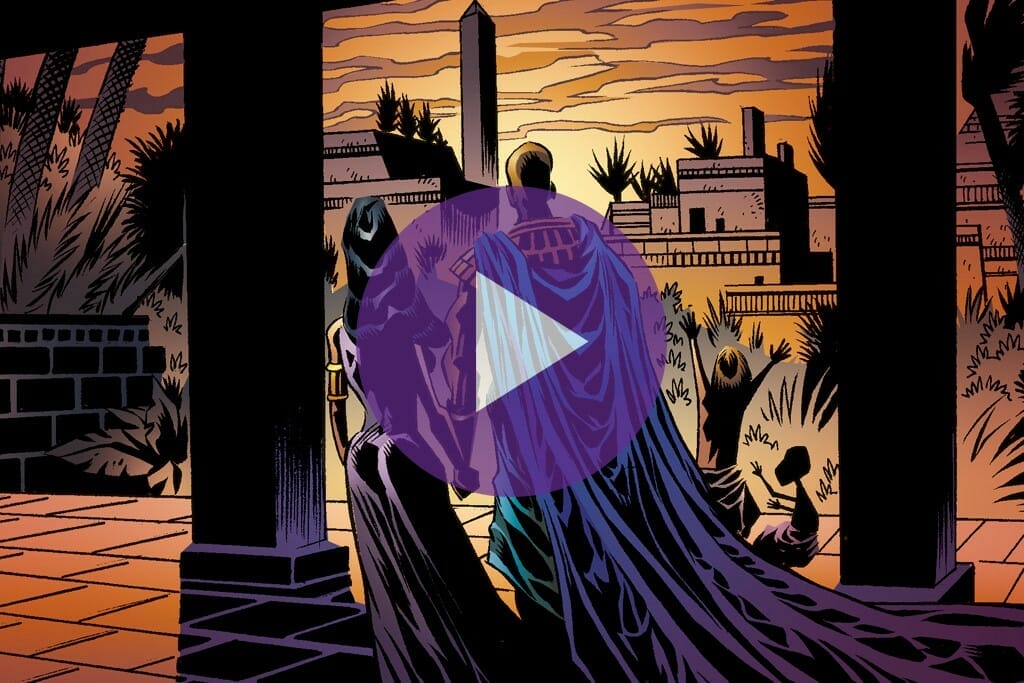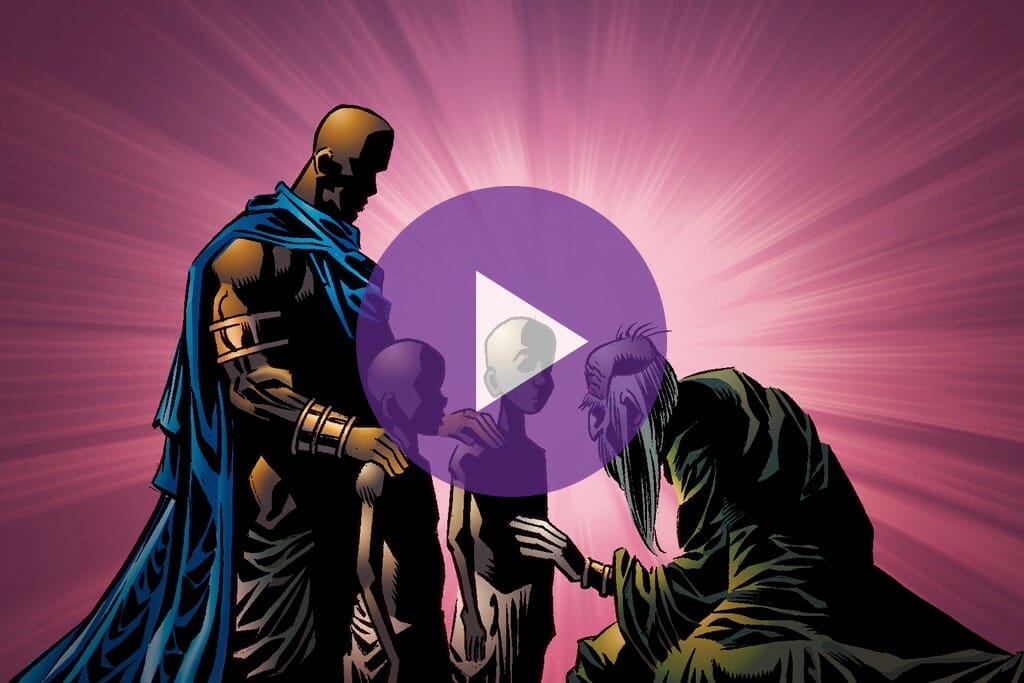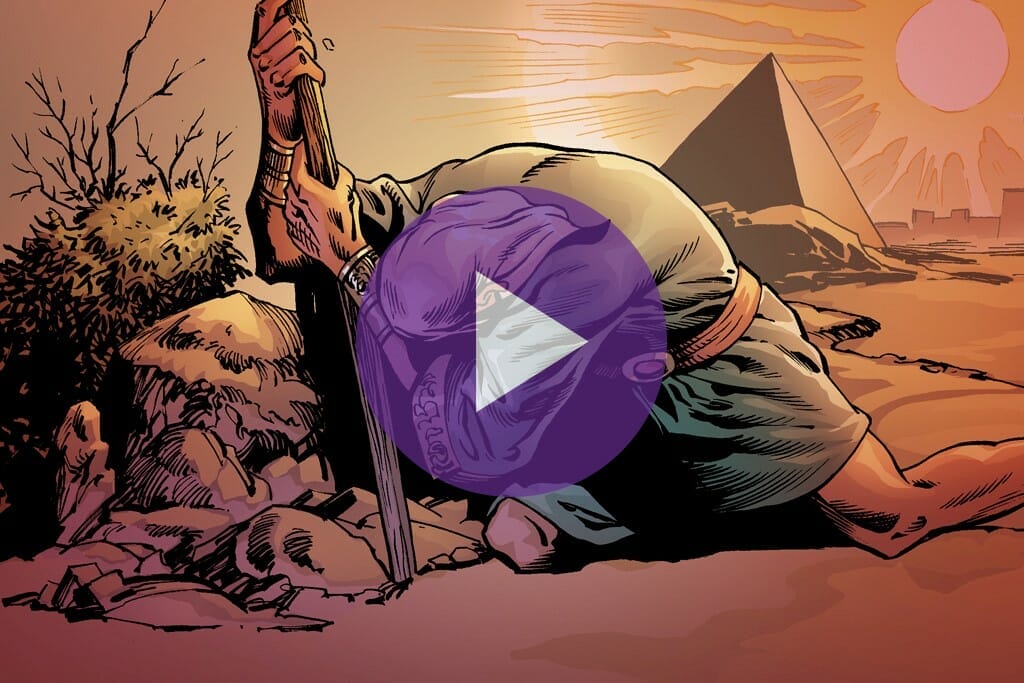As we conclude the story of Jacob, he is now a middle-aged, wealthy family man and successful rancher ready to assume his destined role as a Patriarch. But his business partnership with his uncle/father-in-law Laban is increasingly toxic. At this critical juncture, God speaks to Jacob again in a dream, telling him to return to his homeland.
Jacob and his entourage leave hastily and head toward the Promised Land with their possessions and animals. Before an enraged Laban and his clan catch up to them, God visits Laban in a dream: an unmistakable warning that he must not exact revenge or commit violence toward Jacob. Fearful of this God, Laban approaches Jacob for a truce, ending in a covenant ceremony and setting boundaries between their lands.
Now comes the final turning point in Jacob’s life: he must face what he has been running from for so long—the hatred and revenge of his brother Esau. As he returns to the Promised Land, Jacob receives a hopeful vision from God. Just as 20 years earlier he saw the stairway to heaven, he now sees the adjacent camp is filled with angels who are there to protect him. This gives him encouragement for the dreaded dangerous encounter with his brother.
Jacob receives news that Esau is riding toward him with 400 armed men and prays for God to save him. Instead, an angel appears, and they begin a night-long wrestling match. Finally, after the angel immobilizes and cripples him, Jacob surrenders to God’s will. In response, the angel tells him that his name is no longer Jacob, but “Israel”—the sacred name for God’s people ever since.
And so we come to the fateful meeting of the brothers. Are Esau and his 400-man escort a vengeful army or a welcoming party? Learn the rest of the story as Jacob, now a man of newfound faith, settles into the Promised Land.

